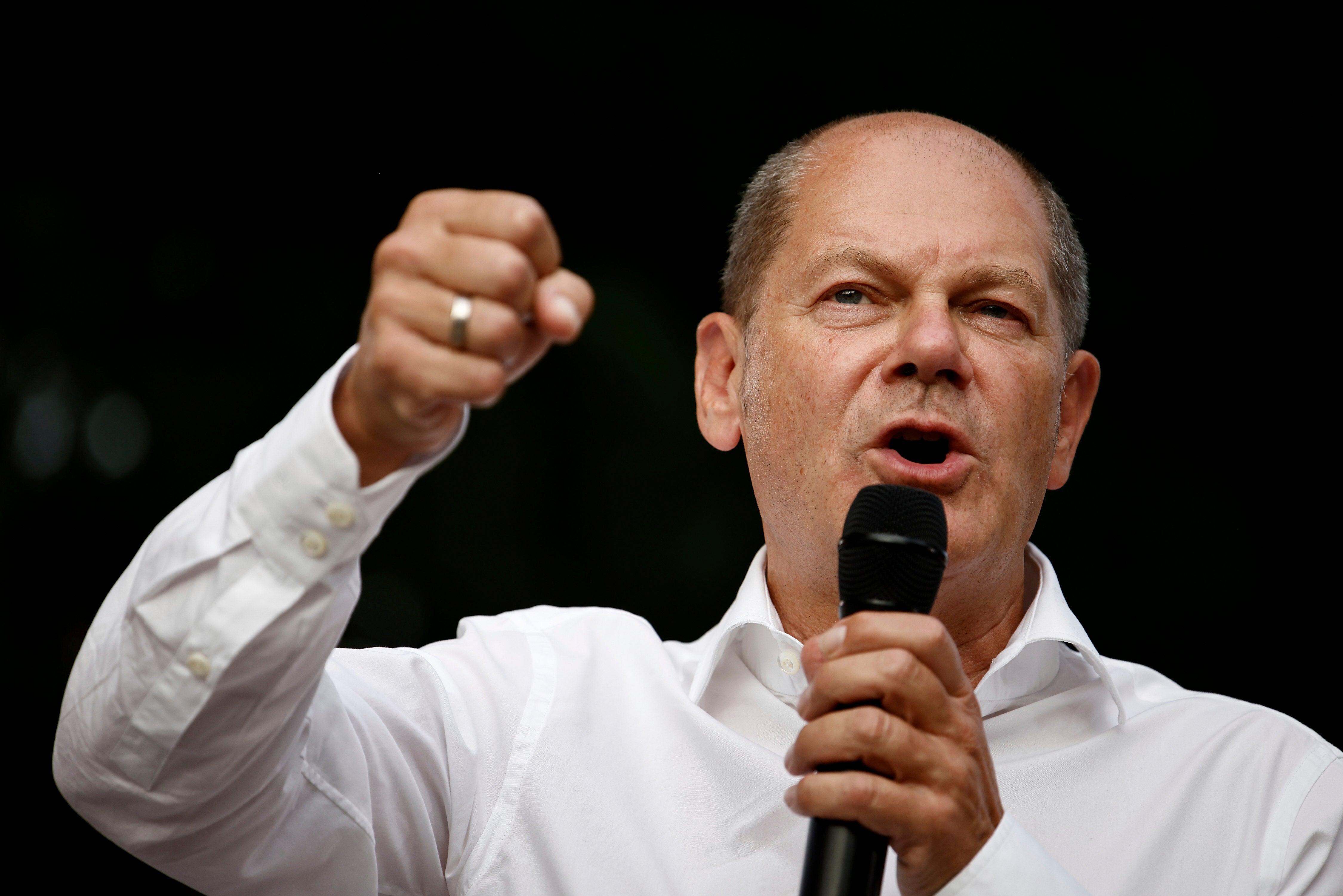Germany lowers natural gas tax to ease burden on consumers
German Chancellor Olaf Scholz says the government will temporarily lower taxes on natural gas to ease the financial pressure on people struggling with soaring energy costs

Your support helps us to tell the story
From reproductive rights to climate change to Big Tech, The Independent is on the ground when the story is developing. Whether it's investigating the financials of Elon Musk's pro-Trump PAC or producing our latest documentary, 'The A Word', which shines a light on the American women fighting for reproductive rights, we know how important it is to parse out the facts from the messaging.
At such a critical moment in US history, we need reporters on the ground. Your donation allows us to keep sending journalists to speak to both sides of the story.
The Independent is trusted by Americans across the entire political spectrum. And unlike many other quality news outlets, we choose not to lock Americans out of our reporting and analysis with paywalls. We believe quality journalism should be available to everyone, paid for by those who can afford it.
Your support makes all the difference.Chancellor Olaf Scholz said Thursday that Germany will temporarily lower taxes on natural gas to ease the financial pressure on people struggling with soaring energy costs fueled by Russia's war in Ukraine.
The announcement at a hastily convened news conference in Berlin comes a day after Scholz met with hostile protests during a town hall event outside the capital.
Scholz said his government had decided to lower the value-added tax on gas from 19% to 7% until the end of March 2024.
“The rising gas prices are a big burden for many citizens," Scholz said, adding that further measures would be announced in the coming weeks.
In addition to rising wholesale prices for natural gas caused by Russia's invasion of Ukraine earlier this year, consumers will have to pay a new surcharge to prop up energy companies scrambling to find new supplies on the global market.
Russia has reduced flows of natural gas — used to generate electricity, run factories and heat homes in the winter — to Germany and other European countries, and there are fears of more cutbacks as the weather gets colder and demand increases. The resulting high prices are fueling inflation, eroding people's spending power and raising the possibility of a recession.
Scholz said that lowering the tax on gas purchases in general would more than make up for the new surcharges, effectively meaning that they will be paid for from government coffers.
The German leader said the issue was a matter of “justice ... to ensure that the country remains united during this crisis.”
Scholz was confronted late Wednesday with angry chants from protesters during a town hall event in the town of Neuruppin, about 50 kilometers (31 miles) northwest of the capital.
Videos showed several hundred people standing outside the security fence surrounding the main event, some shouting “traitor” and “beat it.”
German news agency dpa reported that the protesters were organized by the far-right Alternative for Germany and the Left party.